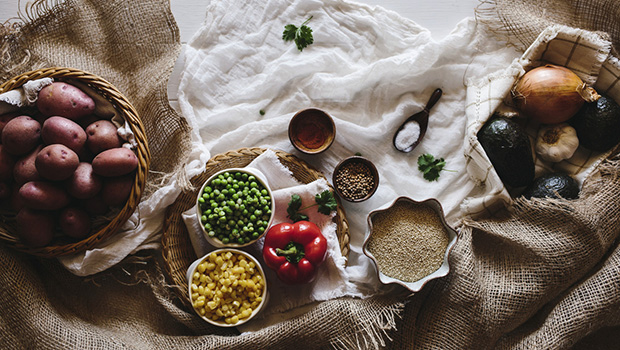
Not all carbs are bad. The right ones can help you feel fuller longer and boost your energy.
It’s time to set the record straight on carbs: They’re not all bad for you. Some carbs are among the best nutritional choices you can make. And they’re necessary to keep up your energy. Here’s why: Carbs are broken down into simple sugars, which are eventually absorbed into the blood stream. When that happens, the pancreas produces insulin. Insulin is a hormone that moves sugar from the blood stream into cells, where it can be used as a source of energy. But if you choose the wrong carbs, such as a high-calorie dessert made with simple sugars, that process occurs too quickly and you’re likely to get hungry again, and maybe even feel a slump in your energy level. But how do you know which carbs are worth putting on your plate and which you should ditch? Here’s a quick guide to understanding the differences.
“Bad” Carbs
Is it white? Has it been refined? Then it’s probably a “bad” carb—a food that has had fiber removed or has been refined through other processes. Simple carbohydrates like those in sugar, syrup, candy, and soda digest easily and can offer a quick burst of energy that also leads to a faster rise in blood sugar and insulin secretion. These are temporary conditions that can, over the long haul, lead to insulin resistance and even diabetes. But don’t think all complex carbs are “good”: Complex carbohydrates that have been refined and processed, such as white bread and white rice (unless they are marked “enriched”), have had many of their nutrients and fiber removed, so they’re not the best choice either.
“Good” Carbs
Rich in fiber and micronutrients, “good” carbohydrates are vital for keeping our bodies nourished and healthy. Naturally occurring simple carbohydrates such as the sugars found in milk and fruits contain essential vitamins and minerals. Fiber-rich complex carbohydrates such as those in whole grain breads and cereals, fruits, starchy vegetables (potatoes, squash, yams, and corn), and legumes (beans, peas, lentils, and peanuts) take longer to digest than their “bad” carb cousins and regulate the rise of blood sugar, helping you avoid the dip in energy that accompanies a refined carb. The fiber in these foods will also keep you feeling fuller and help you feel more satisfied, so you’re less likely to fall into the habit of diving into the nearest “bad” carb when ravenously hungry. Experts suggest that three quarters of your plate at any meal should be filled with “good” carbohydrates, like fruits, vegetables, and whole grains.
Soup
Tuscan Kale and Bean Soup
 Mindful Sodexo
Mindful Sodexo 
0 Comments